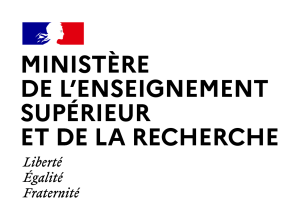HALOWIN
HALOWIN project aims to improve HAL interoperability with preprints reviewing services by developing a technical framework that enables the automatic sharing of documents, metadata and notifications. The project rests upon two services: a publishing platform (Episciences) and a recommandation platform (Peer Community In).
| Funding |
National fund for open science |
 |
| Duration |
33 months |
|
| Project kick-off |
march 2021 |
|
| Partnership |
Peer Community In |
|
| Projet leader |
Raphaël Tournoy |
OpenAIRE Nexus
| Funding |
European project, OpenAIRE-Nexus, Scholarly communication services for the EOSC (INFRAEOSC-07-2020) – Increasing the service offer of the EOSC Portal (a3) services supporting scholarly communication and open access |
| Duration |
30 months |
| Project kick-off |
January 2021 |
| Partnership |
OpenAIRE |
| Project leader |
Raphaël Tournoy |
Description
- Interconnecting Episciences with Zenodo: a researchers will be able to submit a preprint in Zenodo to an Episciences journal;
- Interfacing with other services: statistics system of OpenAIRE, OpenCitations, Scholexplorer and OpenAIRE PROVIDE;
- Making the authentification system used by EOSC available to Episciences users.
Evolution of document typology in HAL
- fulltext of scientific documents,
- easy deposit,
- interoperability.
| Project leader |
Agnès Magron |
| Participants |
Brigitte Bidegaray-Fesquet (Casuhal), Michèle Dassa (INSHS-CST Ribac), Francine Delmas (EPRIST), François Donzel (CCSD), Sandrine Mouret (ADBU), Clothilde Nicol (INRAE) |
Read the outcome of the working group
Read the working group’s report
Methodology
- Inventory of the current list of types of documents in HAL, their interoperability (with ORCID, display of the data in the triplestore)
- Census of the requests of users (support tickets, gathered by the members of the working group)
- Comparison with existing international lists (COAR, ORCID, HCERES, Zenodo)
- Formulation of a list of criteria
Planning
| Start of the work |
September 2020 |
| Presentation of the draft report |
March 2021 |
| Report open to comments |
April-May 2021 |
| Technical study (internal CCSD) |
Septembre 2021 |
| Deployment |
October 2022 |
EOSC Pillar
| Funding |
European project: “EOSC in action: Use Cases and community-driven pilots, work package WP6 de EOSC-Pillar, Task 6.5. FAIR principles in data life-cycles for Humanities” |
| Duration |
36 months |
| Project kick-off |
July 2019 |
| Partnership |
Huma-Num |
| Project leader |
Yannick Barborini |
| CCSD coordination |
Bénédicte Kuntziger |
CCSD’s part:
- Linking publications on HAL to research data in Nakala;
- Inserting data citation and their visualisation in HAL record (through Nakala player);
- Index and display the connections between the resources.
Planning
| Limited deployment of the POC |
June 2021 |
| End of POC |
December 2021 |
Documents & productions
CorHAL
| Funding |
Fond national pour la Science ouverte, allocated to INIST |
| Duration |
12 months |
| Project kick-off |
January 2021 |
| Partnership |
INIST |
| Technical project leader |
Jean-Baptiste Génicot |
| CCSD coordination |
Yannick Barborini |
| Other participants |
Bénédicte Kuntziger (CCSD); CasuHAL user group |